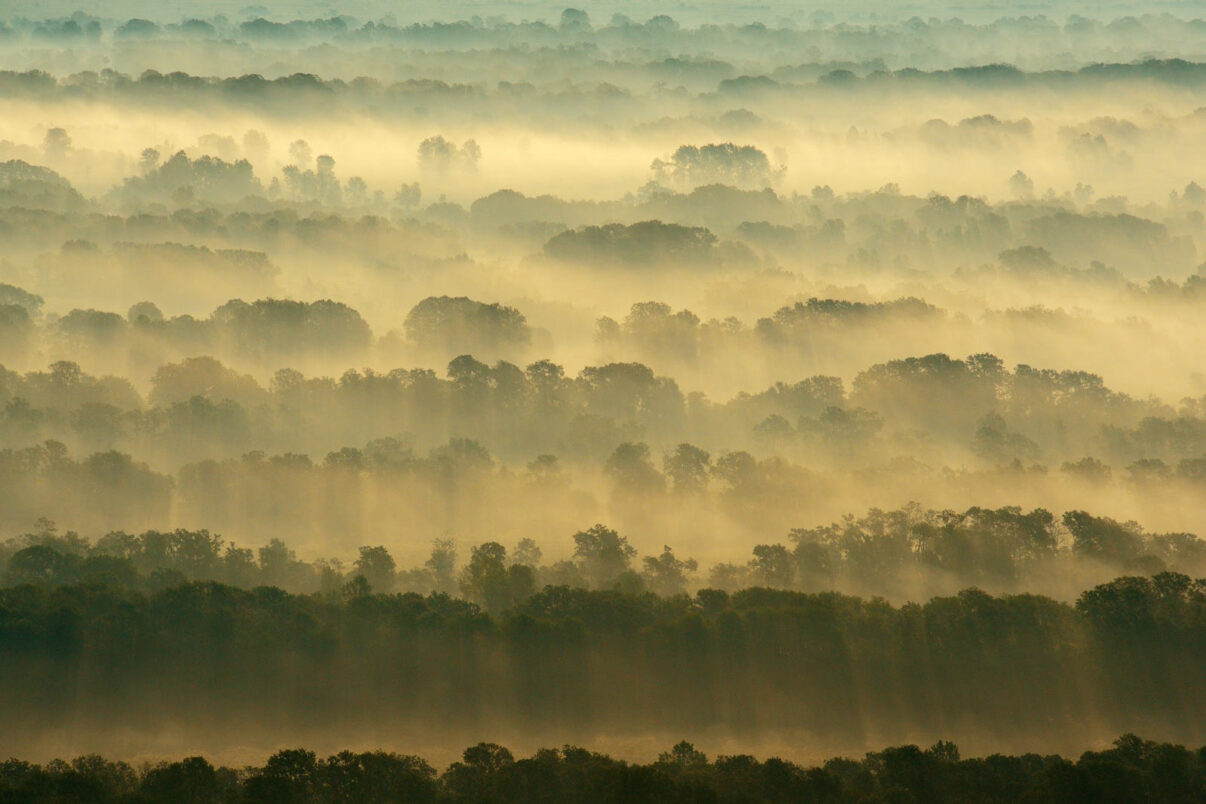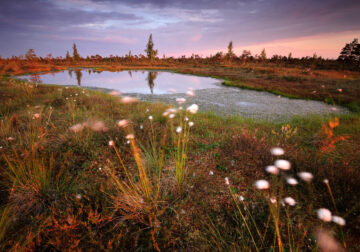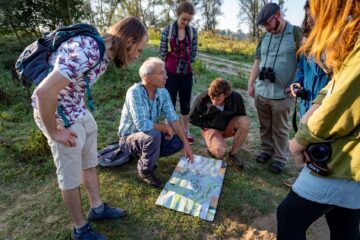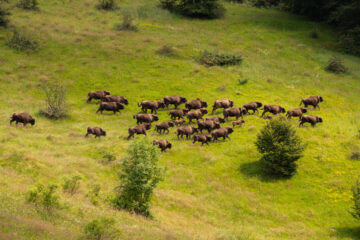The UN Decade on Ecosystem Restoration kicks off on June 5, World Environment Day. Rewilding has a hugely important role to play in the realisation of its aims.

Rewild to restore

On June 5, to coincide with World Environment Day, the UN is launching its Decade on Ecosystem Restoration (UN Decade). Its aim is to “prevent, halt and reverse the degradation of ecosystems on every continent and in every ocean”, thereby combatting climate change, preventing mass extinction and reducing poverty. As a holistic approach to nature conservation – an approach which addresses the needs of both wild nature and people – rewilding is the best way to realise this aim.
Rewilding at scale can simultaneously help to mitigate the scale and impact of global warming, safeguard and enhance biodiversity, and create new sources of sustainable, long-term revenue for businesses and communities. It can also help nature to deliver a huge range of other benefits which are essential to human existence, such as clean air, fertile soil, good health and wellbeing, and resilience to disease. And it is available as a cost-effective, pragmatic, proven solution, right now.
Over the next 10 years, we have a unique and compelling opportunity to upgrade nature for the first time in human history. As we look towards 2030 and beyond, the only way to ensure a healthy and sustainable future for Europe and the planet is to restore large areas through rewilding, reducing human control and letting nature take care of itself, in line with rewilding principles.
“Rewilding must be central to nature restoration efforts,” says Professor Jens-Christian Svenning of Aarhus University, who recently joined the Supervisory Board of Rewilding Europe. “Rewilding reinstates the natural processes that generated and maintained the Earth’s rich biodiversity for millions of years before the advent of human society – as such, it not only allows nature to heal, but to scale up by itself, without any need for human intervention.”
People are key

The effective restoration of nature across the world will only happen if everyone plays a part – from citizens and policymakers to businesspeople and scientists. By acting as a platform for exchange, the UN Decade will bring together people and organisations from across the world, inspiring people to act, fostering collaboration, driving innovation, and enabling new finance mechanisms to develop. This aligns with the principles of rewilding, which call for people to work together, exchange knowledge and think creatively.
But rewilding is not just about putting effort in – it’s also about sharing the benefits that nature can provide. Through rewilding, wilder nature can help to solve a range of modern socio-economic issues, many of which relate to the UN’s 17 Sustainable Development Goals. As results from Rewilding Europe’s operational areas and other rewilding initiatives are already showing, restoring nature can support the development of nature-based economies and provide an increasing number of jobs and livelihoods. This can help to revitalise communities, especially in areas affected by economic decline and rural depopulation.
Reasons to be optimistic

The task of recovering global nature through rewilding over the next 10 years is undeniably daunting. According to the UN, the world must restore an area the size of China to meet current commitments on nature and global warming. We must also learn quickly from our mistakes, such as the prioritisation of tree planting over the regeneration of natural forest. And countries across the world will need help finding rewilding solutions that fit their geography, ecology, socio-economic status and climate.
Yet despite the scale of the challenge, there are many reasons to feel hopeful and motivated as the UN Decade begins. In addition to growing political support, funding for rewilding is also on the rise, with an ever-increasing number of companies, finance and investment institutions, and philanthropists choosing to take financial decisions that help to restore nature.
Rewilding is also resonating ever more strongly with young people, who recognise that nature and biodiversity are essential for addressing climate change and the guarantee of a healthy and sustainable future. And last but not least, some wildlife species are now making a comeback in Europe and beyond, helping us to reforge new human-wildlife relations and proving that nature is resilient and will recover if we create the conditions for it to do so.
“The UN Decade is a rallying call for the immediate scaling up of rewilding,” says Rewilding Europe Managing Director Frans Schepers. “Now is the time to be bold and think big. In 2030, let’s look back at this next 10 years as the time we all came together and did something remarkable. A decade when we unchained nature and saw rewilding play a game-changing role in fixing our climate, enhancing biodiversity and making the world a more liveable place for generations to come.”
Want to know more?

